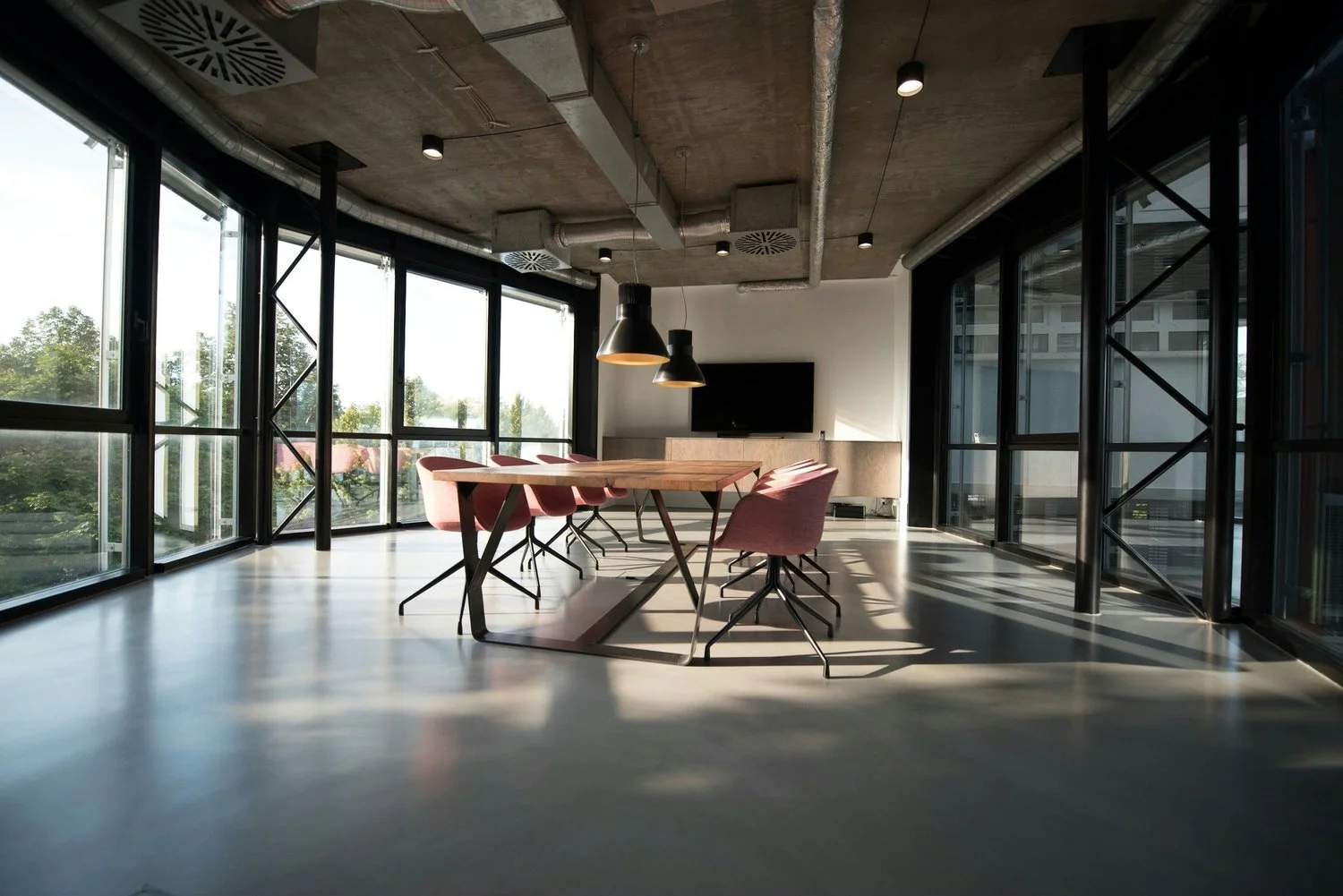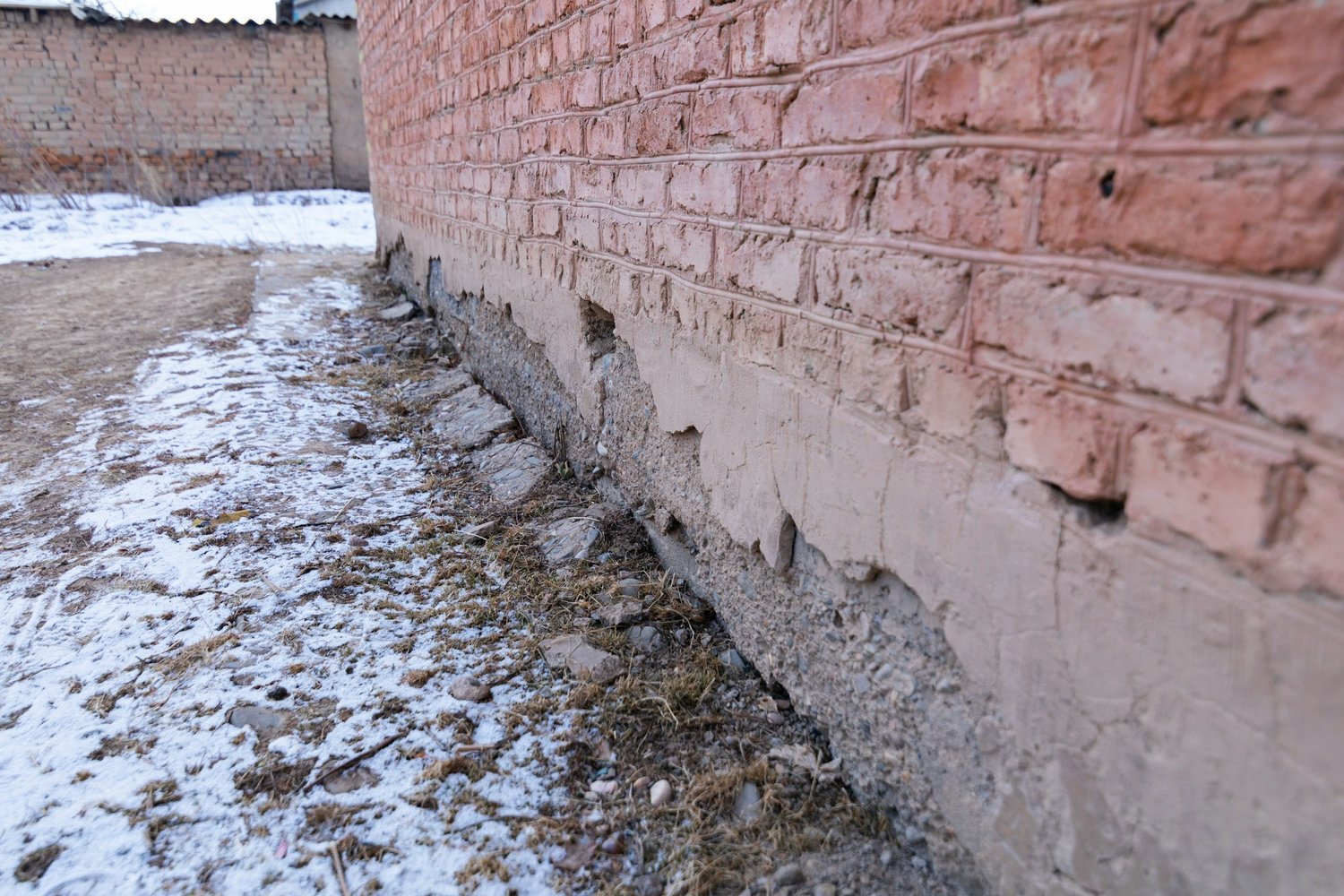Commercial Property Maintenance for Landlords
Maintaining a commercial property is not only essential for preserving its value but also for attracting and retaining tenants. As a landlord, it's crucial to prioritize maintenance to ensure the safety, functionality, and appeal of your commercial property. In this comprehensive guide, we'll explore key strategies and best practices for effectively maintaining commercial properties.
1. Develop a Maintenance Plan
Start by creating a comprehensive maintenance plan that outlines regular maintenance tasks, schedules, and responsibilities. Identify areas of the property that require regular inspection and maintenance, such as HVAC systems, plumbing, electrical systems, roofing, and exterior landscaping. Establish a proactive approach to maintenance to address issues before they escalate into costly repairs.
2. Conduct Regular Inspections
Schedule routine inspections of the property to identify any maintenance issues or potential hazards. Inspect both interior and exterior areas of the property, including common areas, tenant spaces, parking lots, and landscaping. Address any maintenance concerns promptly to prevent further damage and ensure the safety and satisfaction of tenants.
3. Prioritize Safety and Compliance
Maintain compliance with building codes, safety regulations, and industry standards to protect tenants and minimize liability risks. Regularly inspect fire safety systems, emergency exits, signage, and other safety features to ensure they are functioning properly. Stay informed about relevant regulations and make necessary updates or improvements to maintain compliance.
4. Address Tenant Maintenance Requests Promptly
Respond to tenant maintenance requests promptly and efficiently. Establish clear communication channels for tenants to report issues and provide them with emergency contact information for urgent repairs. Prioritize maintenance requests based on urgency and severity to minimize disruptions to tenants' businesses and operations.
5. Invest in Preventive Maintenance
Implement a preventive maintenance program to prolong the lifespan of building systems and components and prevent unexpected breakdowns or failures. Schedule regular maintenance tasks such as HVAC servicing, plumbing inspections, roof inspections, and pest control to identify and address potential issues proactively.
6. Budget for Maintenance Expenses
Allocate a portion of your rental income for maintenance expenses to ensure that you have adequate funds available to address maintenance needs as they arise. Consider creating a reserve fund specifically designated for maintenance and repairs to cover unexpected expenses and major capital improvements.
7. Hire Qualified Contractors
Work with reputable and qualified contractors and service providers for maintenance and repair work. Vet contractors carefully, check references, and ensure that they are licensed, bonded, and insured. Establish ongoing relationships with contractors to streamline communication and ensure timely and quality service.
8. Monitor Property Performance
Regularly monitor the performance of the property, including tenant satisfaction, occupancy rates, and maintenance costs. Solicit feedback from tenants regarding maintenance and property management to identify areas for improvement and address concerns proactively.
9. Plan for Seasonal Maintenance
Anticipate seasonal maintenance needs and prepare the property accordingly. Schedule seasonal tasks such as gutter cleaning, landscaping, snow removal, and HVAC system inspections to maintain the property's functionality and curb appeal year-round.
10. Stay Proactive and Flexible
Stay proactive and flexible in your approach to maintenance, adapting to changing circumstances and addressing issues promptly. Regularly reassess the property's maintenance needs and adjust your maintenance plan as necessary to ensure optimal performance and tenant satisfaction.
By following these strategies and best practices, landlords can effectively maintain commercial properties, protect their investments, and provide tenants with safe, functional, and attractive spaces for conducting business. Remember that proactive maintenance not only preserves the value of the property but also fosters positive tenant relationships and contributes to long-term success in the commercial real estate market.
As one of the prominent Chilliwack Property Management offices, we are here to help! Need further information about a topic, call Select Real Estate, Property Management Division at 604-793-2200.
Commercial Tenants: Protecting your Business
Commercial tenants face unique risks and liabilities associated with leasing commercial space. While landlords typically have insurance coverage for the building itself, it's essential for commercial tenants to protect their businesses, assets, and liabilities with appropriate rental insurance.
1. Understand Lease Requirements
Before purchasing rental insurance, carefully review your lease agreement to understand any insurance requirements imposed by the landlord. Landlords may require commercial tenants to carry specific types of insurance, such as general liability insurance or property insurance, and may specify minimum coverage limits. Ensure that your insurance policy meets these requirements to comply with the terms of your lease.
2. Assess Your Business Risks
Evaluate the unique risks and liabilities associated with your business operations and the commercial property you're leasing. Consider factors such as the nature of your business, the type of property you occupy, and any potential hazards or vulnerabilities that could result in property damage, injuries, or financial losses. Tailor your insurance coverage to address these specific risks and mitigate potential liabilities.
3. Determine Coverage Needs
Identify the types of insurance coverage needed to adequately protect your business and assets. Common types of rental insurance for commercial tenants include:
· General Liability Insurance**: Provides coverage for third-party bodily injury, property damage, and personal injury claims arising from your business operations or activities conducted on the premises.
· Commercial Property Insurance**: Protects your business property, inventory, equipment, and fixtures against damage or loss caused by covered perils such as fire, theft, vandalism, and certain natural disasters.
· Business Interruption Insurance**: Covers lost income and ongoing expenses if your business operations are interrupted or suspended due to a covered event, such as a fire or natural disaster.
4. Consider Additional Coverages
Depending on your business's needs and industry-specific risks, you may want to consider additional coverages such as:
· Professional Liability Insurance**: Also known as errors and omissions insurance, this coverage protects against claims of professional negligence or failure to perform services as promised.
· Cyber Liability Insurance**: Provides coverage for losses resulting from data breaches, cyberattacks, or other cyber-related incidents that compromise sensitive information or disrupt business operations.
· Tenant Improvements Insurance**: Covers alterations, improvements, or renovations made to the leased space by the tenant, including fixtures, built-in equipment, and interior finishes.
5. Shop Around for Quotes
Take the time to shop around and compare quotes from multiple insurance providers specializing in commercial insurance. Consider factors such as coverage options, policy limits, deductibles, premiums, and the insurer's reputation for customer service and claims handling. Choose an insurance provider that offers the right coverage at a competitive price to meet your business's needs and budget.
6. Review and Update Coverage Regularly
As your business evolves and grows, it's important to regularly review and update your insurance coverage to reflect any changes in your operations, assets, or risks. Keep your insurance policies up-to-date and ensure that your coverage remains adequate to protect your business against emerging threats and liabilities.
Rental insurance is a critical component of risk management for commercial tenants, providing essential protection for businesses, assets, and liabilities. By understanding lease requirements, assessing business risks, determining coverage needs, and exploring additional coverages, commercial tenants can ensure comprehensive protection and peace of mind during their lease term. Remember to review and update your insurance coverage regularly to adapt to changing circumstances and mitigate potential risks effectively.
As one of the prominent Chilliwack Rental Management offices, we are here to help! Need further information about a topic, call Select Real Estate, Property Management Division at 604-793-2200.
Importance of Maintenance for Landlords
Owning a rental property can be a lucrative investment, but it also comes with its fair share of responsibilities. One of the most important aspects of being a landlord is ensuring that your property is well-maintained. Not only does proper maintenance attract and retain tenants, but it also helps protect your investment in the long run. In this blog post, we'll discuss the essential aspects of maintaining a rental property for landlords.
Maintenance is crucial for several reasons:
1. Tenant Satisfaction:
Well-maintained properties attract and retain high-quality tenants who are more likely to take care of the property and pay rent on time.
2. Property Value:
Regular maintenance helps preserve the value of your investment by preventing minor issues from escalating into major problems.
3. Legal Obligations:
Landlords have a legal obligation to provide safe and habitable living conditions for their tenants. Neglecting maintenance can lead to legal issues and even costly lawsuits.
4. Cost Savings:
Addressing maintenance issues promptly can save you money in the long run by avoiding expensive repairs or replacements.
Key Maintenance Tasks
Here are some essential maintenance tasks that landlords should prioritize:
Regular Inspections
Perform regular inspections of the property to identify any maintenance issues before they escalate. Inspect the plumbing, electrical systems, HVAC, appliances, and structural components for any signs of wear or damage.
Plumbing and Electrical Maintenance
Address plumbing leaks, clogged drains, and electrical issues promptly to prevent water damage or fire hazards. Schedule periodic checks of plumbing and electrical systems to ensure they are functioning properly.
HVAC System Maintenance
Service the heating, ventilation, and air conditioning (HVAC) system regularly to ensure optimal performance and energy efficiency. Replace filters, clean ducts, and schedule professional inspections to detect any potential problems early on.
Exterior Maintenance
Don't overlook the exterior of the property. Maintain the landscaping, repair any damaged siding or roofing, and keep walkways and driveways clear of debris. Regularly inspect the exterior for signs of damage or wear and address any issues promptly.
Appliance Maintenance
Regularly inspect and service appliances such as refrigerators, stoves, dishwashers, and washing machines to ensure they are in good working condition. Promptly repair or replace any faulty appliances to avoid inconveniencing tenants.
Responding to Maintenance Requests
Encourage tenants to report maintenance issues promptly and respond to their requests in a timely manner. Establish clear communication channels for reporting maintenance issues and provide tenants with emergency contact information for urgent repairs.
Budgeting for Maintenance
Budgeting for maintenance expenses is essential for landlords. Set aside a portion of the rental income each month for maintenance and repairs. Additionally, consider purchasing a home warranty or landlord insurance policy to cover unexpected maintenance costs.
Maintaining a rental property requires proactive effort and investment, but it's essential for protecting your investment and keeping your tenants satisfied. By prioritizing regular maintenance tasks, promptly addressing issues, and budgeting for maintenance expenses, landlords can ensure that their rental properties remain safe, attractive, and profitable investments for years to come. Remember, a well-maintained property not only benefits your tenants but also contributes to your success as a landlord.
As one of the prominent Chilliwack Property Management offices, we are here to help! Need further information about a topic, call Select Real Estate, Property Management Division at 604-793-2200.
BC Tenants: Know Your Rights and Responsibilities
Being a tenant comes with a certain balance. You deserve a safe and comfortable place to live, but you also have a responsibility to maintain the property. This blog post will explore the key rights and responsibilities of tenants in British Columbia, ensuring a smooth and respectful relationship with your landlord.
Your Rights as a Tenant:
Peaceful living: You have the right to "quiet enjoyment" of your rental unit. This means freedom from unreasonable disturbances and the ability to live in peace [2].
Repairs and maintenance: Your landlord is responsible for ensuring the rental unit is in a good state of repair and maintains essential services like heat and plumbing [6].
Security of tenure: Lease agreements should be fair and transparent, outlining the rights and responsibilities of both parties. Tenants should review the lease carefully before signing and seek clarification on any terms they don't understand. It's also important for tenants to adhere to the terms of the lease, including paying rent on time, respecting noise regulations, and not subletting the property without permission. Landlords cannot evict you without following proper procedures outlined in the Residential Tenancy Branch (RTB) Act [2].
Privacy: You have a reasonable expectation of privacy in your rental unit [2]. While landlords have the right to access the property for certain reasons, such as repairs or inspections, tenants also have the right to privacy. Tenants should respect the landlord's right to access the property for legitimate purposes, such as repairs or inspections, while landlords should provide reasonable notice before entering the premises, except in cases of emergency.
Your Responsibilities as a Tenant
Paying rent on time and in full: This is your most crucial responsibility as a tenant. Late or missed payments can lead to eviction [1].
Maintaining the property: You're responsible for keeping the unit clean and sanitary, and reporting any damages beyond normal wear and tear [6].
Following the rules (and Bylaws if in a strata property): Your tenancy agreement might outline specific rules regarding noise levels, guests, or pets. Make sure you understand and follow these [1].
Protecting the property: You have a responsibility to take reasonable care of the rental unit and prevent damage caused by yourself, guests or pets [4].
Additional Resources:
If a landlord violates the terms of the lease or fails to uphold their legal obligations, tenants have the right to pursue legal recourse. However, tenants should also make efforts to resolve disputes with their landlords amicably whenever possible, such as communicating openly about issues and seeking mutually agreeable solutions.
Residential Tenancy Branch (RTB): The BC government's RTB website offers a wealth of information for tenants, including your rights, responsibilities, and a dispute resolution process [2].
Tenant Resource & Advisory Centre (TRAC): TRAC is a non-profit organization that provides free information and advocacy services to tenants in BC [6].
By understanding your rights and fulfilling your responsibilities, you can ensure a positive and secure tenancy in British Columbia. Remember, communication is key! If you have any concerns or questions, don't hesitate to reach out to your landlord, landlord’s representative – usually your property manager, or the RTB for clarification.
As one of the prominent Chilliwack Property Management offices, we are here to help! Need further information about a topic, call Select Real Estate, Property Management Division at 604-793-2200.
Commercial Rental Insurance
Commercial landlords face unique challenges and risks compared to their residential counterparts. Protecting your commercial property and managing liability exposures are critical aspects of property ownership. As one of the prominent Chilliwack Property Management offices, we are here to help! Need further information about this topic, call Select Real Estate, Property Management Division at 604-793-2200.
1. Understand Your Policy Coverage
Just like residential landlords, commercial landlords should thoroughly understand the coverage provided by their insurance policies. Commercial property insurance typically covers damage to the building and its contents from events like fire, vandalism, theft, and certain natural disasters. Liability insurance protects against lawsuits stemming from injuries or property damage on the premises. Review your policy carefully to understand its terms, limits, and exclusions.
2. Consider Business Interruption Insurance
Business interruption insurance, also known as business income insurance, is a valuable coverage option for commercial landlords. This coverage helps compensate for lost rental income and ongoing expenses if your property becomes uninhabitable or temporarily unusable due to a covered event, such as a fire or natural disaster. It provides financial support during the downtime required for repairs or reconstruction, ensuring continuity of income for your business.
3. Evaluate General Liability Insurance
General liability insurance is essential for commercial landlords to protect against third-party bodily injury and property damage claims. This coverage can help cover medical expenses, legal fees, and settlements or judgments resulting from lawsuits filed by tenants, visitors, or vendors injured on the premises or alleging property damage caused by your negligence.
4. Explore Environmental Liability Coverage
Commercial properties, particularly older buildings or those in certain industries, may face environmental liability risks related to pollution, hazardous materials, or contamination. Environmental liability insurance provides protection against claims and cleanup costs associated with pollution incidents on the property, helping mitigate financial and reputational risks for commercial landlords.
5. Assess Directors and Officers (D&O) Insurance
If you own commercial property as part of a business entity or investment group, consider obtaining directors and officers (D&O) insurance. D&O insurance protects the personal assets of company directors and officers from lawsuits alleging wrongful acts or decisions made in their official capacity. This coverage can be crucial for protecting individual stakeholders from financial losses resulting from litigation.
6. Require Tenant Insurance
Require tenants to carry their own insurance as a condition of the lease agreement. Commercial tenant insurance, also known as commercial general liability insurance or renters insurance, helps protect tenants' businesses and assets from liability claims and property damage. Requiring tenant insurance can help reduce your exposure to liability and ensure that tenants have the financial resources to cover their own losses.
7. Work with an Experienced Insurance Broker
Navigating the complexities of commercial rental insurance can be challenging, so it's essential to work with an experienced insurance broker or agent specializing in commercial real estate. A knowledgeable broker can help assess your unique insurance needs, recommend appropriate coverage options, and negotiate competitive rates with insurance carriers.
Rental insurance is a vital component of risk management for commercial landlords, providing essential protection against property damage, liability claims, and loss of rental income. By understanding your policy coverage, exploring additional insurance options, and implementing risk mitigation strategies, you can better protect your investment and minimize financial exposure. Remember to regularly review and update your insurance coverage to adapt to changing circumstances and ensure comprehensive protection for your commercial property portfolio.
Insurance Tips for Residential Landlords
As a residential landlord, protecting your property and mitigating liability risks is paramount. While landlord insurance provides essential coverage, there are additional considerations and optional coverages that can further safeguard your investment and financial well-being.
1. Understand Your Policy Coverage
Standard landlord insurance typically covers property damage caused by events like fire, storms, vandalism, and theft, as well as liability protection for injuries that occur on the property. Review your policy carefully to know exactly what is covered and any limitations or exclusions.
2. Consider Rental Income Loss Coverage
Rental income loss coverage, also known as rental reimbursement coverage, can provide financial protection if your rental property becomes uninhabitable due to a covered event. This coverage can help compensate for lost rental income while the property is being repaired or rebuilt, ensuring that you don't suffer significant financial losses during downtime.
3. Explore Umbrella Liability Insurance
Umbrella liability insurance offers an extra layer of liability protection beyond the limits of your standard landlord insurance policy. In the event of a lawsuit resulting from a covered incident, such as a tenant injury or property damage, umbrella insurance can help cover legal fees, medical expenses, and damages that exceed your primary policy's limits.
4. Tenant Property Damage Coverage
While landlord insurance typically covers damage to the rental property itself, it may not extend to your tenants' personal belongings. Consider offering optional tenant property damage coverage as part of the lease agreement or recommend that tenants purchase renters insurance to protect their possessions in case of theft, fire, or other covered perils.
5. Boiler and Machinery Insurance
If your rental property has heating, cooling, or other mechanical systems, boiler and machinery insurance can provide coverage for equipment breakdowns and the resulting property damage or loss of income. This coverage can be especially valuable for landlords of older properties with aging HVAC systems or other mechanical equipment.
6. Require Tenant Liability Insurance
To further mitigate liability risks, consider requiring tenants to carry their own liability insurance as a condition of the lease agreement. Tenant liability insurance can help protect both parties in the event of accidents or injuries on the premises, reducing the likelihood of costly legal disputes and claims against your landlord insurance policy.
7. Regularly Review and Update Coverage
As your rental property portfolio grows and evolves, it's important to regularly review your insurance coverage to ensure that it adequately reflects your changing needs and circumstances. Keep your insurance agent informed of any significant changes, such as property upgrades, renovations, or changes in occupancy, to ensure that you have the appropriate coverage in place.
Rental insurance is a critical component of risk management for residential landlords, providing essential protection against property damage, liability claims, and loss of rental income. By understanding your policy coverage, exploring additional insurance options, and implementing risk mitigation strategies, you can better protect your investment and minimize financial exposure. Remember to work closely with your insurance agent to tailor coverage to your specific needs and circumstances, ensuring peace of mind and financial security for you and your rental property portfolio.
As one of the prominent Chilliwack Property Management offices, we are here to help! Need further information? Call Select Real Estate, Property Management Division at 604-793-2200.
Residential Tenants: Protecting Your Belongings
While landlords typically have insurance coverage for the rental property itself, it's important for tenants to protect their personal belongings and liabilities with rental insurance. Rental insurance, also known as renters insurance, provides valuable coverage for tenants in case of unexpected events or accidents.
While landlords typically have insurance coverage for the rental property itself, it's important for tenants to protect their personal belongings and liabilities with rental insurance. Rental insurance, also known as renters insurance, provides valuable coverage for tenants in case of unexpected events or accidents.
1. Understand What's Covered
Before purchasing rental insurance, take the time to understand what the policy covers. Most renters insurance policies provide coverage for personal belongings, liability protection, and additional living expenses if your rental becomes uninhabitable due to a covered event. Review the policy details, including coverage limits, deductibles, and any exclusions, to ensure it meets your needs.
2. Assess Your Belongings
Create an inventory of your belongings to estimate their total value. This includes furniture, electronics, clothing, jewelry, appliances, and other personal items. Knowing the value of your possessions will help you determine the appropriate amount of coverage needed to replace them in case of theft, fire, or other covered perils.
3. Choose the Right Coverage Limits
Select coverage limits that adequately protect your personal belongings. Consider factors such as the value of your possessions, the cost of replacing them with new items, and any special items that may require additional coverage. While higher coverage limits may result in slightly higher premiums, they provide greater peace of mind and financial protection.
4. Understand Liability Protection
Liability protection is a crucial component of rental insurance that covers you in case someone is injured on your rental property or if you accidentally damage someone else's property. Ensure that your rental insurance policy includes liability coverage with sufficient limits to protect your assets and cover legal expenses in case of a lawsuit.
5. Consider Additional Coverages
Depending on your needs, you may want to consider additional coverages such as:
• Replacement Cost Coverage**: This coverage pays the actual cost to replace your belongings with new items of similar kind and quality, without deducting for depreciation.
• Valuable Items Coverage**: If you own high-value items such as jewelry, art, or collectibles, consider adding valuable items coverage to your policy to ensure they're adequately protected.
• Water Backup Coverage**: Protects against damage caused by water backup or sump pump failure, which may not be covered by standard renters insurance policies.
6. Shop Around for Quotes
Take the time to shop around and compare quotes from multiple insurance providers to find the best coverage at the most competitive price. Consider factors such as coverage options, deductibles, premiums, and customer service reputation when selecting an insurance company.
7. Bundle Policies for Discounts
If you have other insurance needs, such as auto insurance or life insurance, consider bundling your policies with the same insurance provider to take advantage of multi-policy discounts. Bundling can help you save money on premiums while consolidating your insurance coverage with a single provider for added convenience.
Rental insurance is a valuable investment for residential tenants, providing protection for personal belongings, liability risks, and additional living expenses in case of unforeseen events. By understanding your coverage needs, choosing the right policy limits, and exploring additional coverages, you can ensure that you have adequate protection and peace of mind during your tenancy. Remember to regularly review and update your rental insurance policy to reflect any changes in your living situation or insurance needs.
As one of the prominent Chilliwack Rental Management offices, we are here to help! Need further information about a topic, call Select Real Estate, Property Management Division at 604-793-2200.
Residential tenants and Utility bills
When your property is vacant, it is your responsibility to ensure that utility payments are assumed under your name. In order to do this, it must be the property owner that contacts the provider, and not your representative.
Owners and Landlords - Utility bills
When your property is vacant, it is your responsibility to ensure that BC Hydro and Fortis payments are assumed under your name. In order to do this, it must be the property owner, and not Select as your representative. The notes below are here to help:
BC Hydro
If your tenants pay BC Hydro directly for electricity service, you can enter into a Rental Premise Agreement to manage a BC Hydro account for the vacant periods between tenants. This helps avoid delays in electrical service for any new tenants. Get started by filling out the application online.
Fortis:
No way to reinstate an account online if a tenant moves out. Owner(s) must call and transfer the account over to their name.
Water and sewer bills
For water and sewer, the municipalities invoice these utilities: some are including in your annual property taxes, others are invoiced directly to the property.
If the property is split into separate units, e.g. a main floor suite and a basement suite, and billed to the property as a whole, then those bills can be split proportionately between the units.
If you have any questions, please speak with your Select Real Estate property manager.
As one of the prominent Chilliwack Property Management offices, we are here to help! Need further information about a topic, call Select Real Estate, Property Management Division at 604-793-2200.
Eco-friendly Lifestyle: Green living tips
With environmental concerns on the rise, adopting eco-friendly practices has become essential for preserving our planet for the future. Fortunately, making greener choices doesn't have to be difficult or expensive. Here’s a few simple green living tips that anyone can incorporate into their daily lives.
With environmental concerns on the rise, adopting eco-friendly practices has become essential for preserving our planet for the future. Fortunately, making greener choices doesn't have to be difficult or expensive. Here’s a few simple green living tips that anyone can incorporate into their daily lives.
1. Reduce, Reuse, Recycle
Make a conscious effort to reduce your consumption: reuse items whenever possible, and recycle materials like paper, plastic, glass, and metal. Set up recycling bins in your home and commit to properly sorting your waste.
2. Compost Organic Waste
Divert organic waste from landfills by composting food scraps, yard waste, and other biodegradable materials. Composting not only reduces methane emissions but also produces nutrient-rich soil that can be used to fertilize gardens and landscaping.
3. Save Energy
Cut down on your energy consumption by turning off lights, appliances, and electronics when they're not in use. Invest in energy-efficient appliances and light bulbs, and consider installing a programmable thermostat to regulate heating and cooling usage.
4. Conserve Water
Water is a precious resource, so it's important to use it wisely. Fix any leaks in faucets or pipes, take shorter showers, and consider installing low-flow fixtures to reduce water usage. Collect rainwater for watering plants and gardens whenever possible.
5. Eat Local and Organic
Support local farmers and reduce the environmental impact of your diet by choosing locally grown, organic foods whenever possible. Visit farmers' markets or join a community-supported agriculture (CSA) program to access fresh, seasonal produce that hasn't traveled long distances.
6. Minimize Plastic Use
Plastic pollution is a significant environmental problem, so strive to reduce your reliance on single-use plastics. Bring reusable bags, water bottles, and containers when shopping or dining out, and choose products with minimal plastic packaging.
You can also explore minimalistic living; support of sustainable brands, choosing sustainable transportation, and advocating/educating others to grow awareness.
By incorporating these simple green living tips into your daily routine, you can make a meaningful difference for the planet while enjoying a more sustainable and fulfilling lifestyle. Remember, every small action counts, and together, we can create a greener, more resilient world for generations to come to enjoy.
As one of the prominent Chilliwack Rental Management offices, we are here to help! Need further information about a topic, call Select Real Estate, Property Management Division at 604-793-2200.
Looking for helpful Property Management articles?
Look no further. As one of the prominent Chilliwack Property Management offices, we are here to help! Our posts will include articles for owners and tenants, residential and commercial rental properties. Need further information about a topic, call Select Real Estate, Property Management Division at 604-793-2200: we’ll be happy to help!










